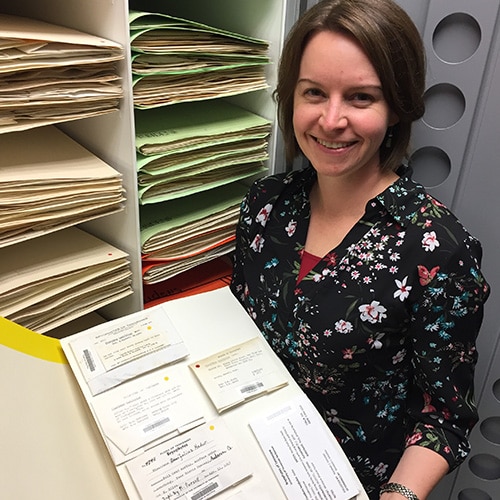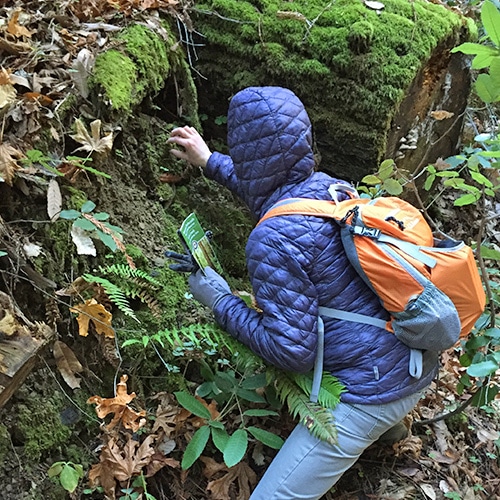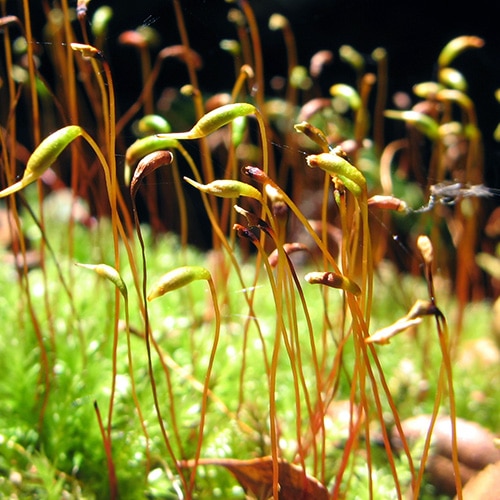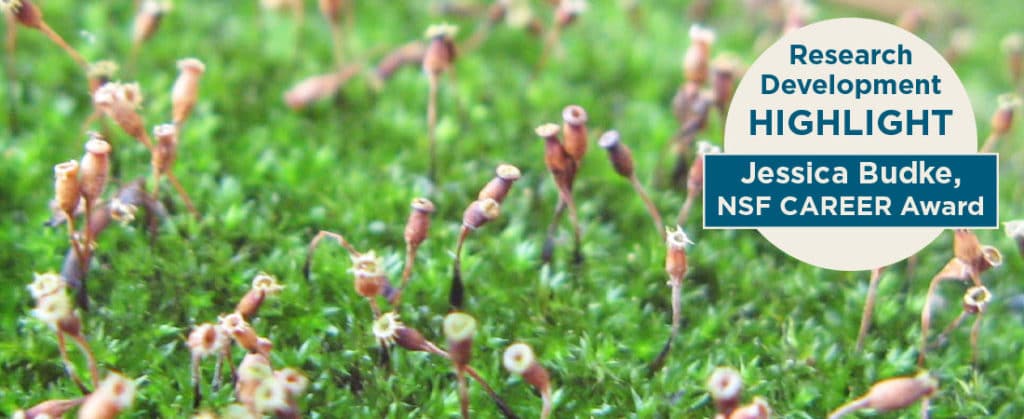The relationship between parents and children can sometimes be fraught with conflict. Many of us can recollect butting heads with our parents or children over individual rights and privileges, but few would go so far as to call it an outright war. However, Jessica Budke, assistant professor and herbarium director in the Department of Ecology and Evolutionary Biology at the University of Tennessee, Knoxville, might disagree.
Every year, UT researchers on the tenure track as assistant professors have an opportunity to apply for the National Science Foundation’s CAREER award. Budke recently received a $1.4 million CAREER award for her work on parent-offspring conflict in mosses.

Jessica Budke, assistant professor and herbarium director in the Department of Ecology and Evolutionary Biology
Over the next five years, her research group will study the evolution of structures enabling moss offspring to take more resources for their growth, and concurrently the evolution of parental structures that help them conserve resources for their own survival and future reproduction—what Budke refers to as an “evolutionary arms race.”
Budke acknowledged that the support provided by Diana Moyer, research development (RD) manager in UT’s Office of Research and Engagement, was key to the success of her proposal. For the past three years, Moyer has led information sessions and a five-part workshop series to support faculty in their pursuit of CAREER awards.
“Diana’s workshop was critical,” Budke said. “Plus, she was able to present information to us remotely during the pandemic and to connect us with successful UT researchers who have been funded through this program. They shared materials and gave us feedback. Access to that peer support network was huge!”

Dr. Budke examines some mosses growing on soil on the side of the trail hunting for sporophyte offspring.
“Dr. Budke’s work is an excellent example of the type of innovative integration of research and education that the CAREER award is designed to encourage,” said Moyer. “Her proposed work has the potential to not only make important contributions to our understanding of parental-offspring resource allocation in plants but also to create a more diverse next generation of scientists through her field-based and community-engaged education activities.”
Budke appreciated the extra assistance provided by Stacey Wade, programs administrator in UT’s Office of Sponsored Projects (OSP). By working with Moyer, she was able to connect with Wade early in the process (something OSP encourages all faculty to do), allowing time to troubleshoot budget issues and polish her list of suggested reviewers. Wade was also able to answer questions related to the budget when the award was made, another advantage for Budke.
Moyer will hold information sessions in March, followed by a CAREER workshop series, beginning in mid-April. Last year, the sessions covered all aspects of the CAREER proposal, shared examples, and set up peer support groups. Budke said the sessions and follow-up development work with Moyer helped her address the primary requirement of a CAREER proposal, which is to integrate education and research.
Budke is currently developing a three-week undergraduate class in May that will integrate students in all aspects of the research. Week one will be spent in the field, where students will learn about moss biology and collect plants to create natural history specimens. Week two will be spent in the herbarium, where students will process specimens, measuring and collecting data. Week three will be spent in Budke’s lab, where students will then learn how to process plants for DNA extraction and to generate molecular data.
Budke’s CAREER award provides funding over the next five years. Each year, 10 students will have the opportunity to participate in this class and the course will run for the duration of the award. She envisions some of these students gaining additional research experience by working in her lab during the summer and following semesters. She explained that first-hand experience in research is extremely valuable to biology students.

Windswept Broom Moss (Dicranum scoparium)
“You can sit in class and learn a lot about science, but the best way to be a scientist is to do science. When students have the opportunity to do scientific research, it increases their confidence,” she said. “Some students who may not excel in the classroom may shine in a research lab. There are lots of skills that are important for being a scientist. Challenges and failures happen often in research and thus grit and perseverance are critical.”
Budke said providing students with research experiences and enabling them to be scientists can be a key to their success. “That’s one of the advantages of coming to an R1 university like UT,” she said. “The classes might be bigger, but we have many highly active research labs where you can interact with scientists and be immersed in cutting-edge scientific research.”
According to the NSF this foundation-wide CAREER program is its most prestigious award in support of early-career faculty “who have the potential to serve as academic role models in research and education and to lead advances in the mission of their department or organization.” The opportunity is open to tenure-track faculty from all disciplines funded by NSF, and NSF especially encourages women, members of underrepresented minority groups, and persons with disabilities to apply. The deadline to apply for CAREER proposals is July 26, 2021.
For more information about the NSF CAREER opportunity and the support provided to faculty, contact Diana Moyer (dmoyer@utk.edu).
